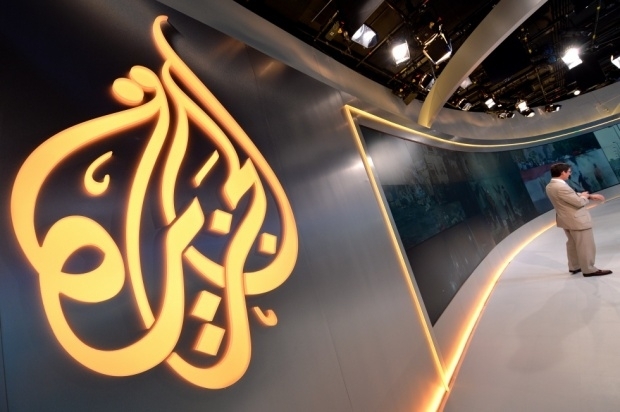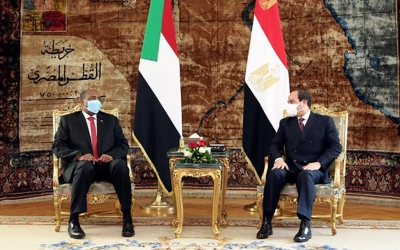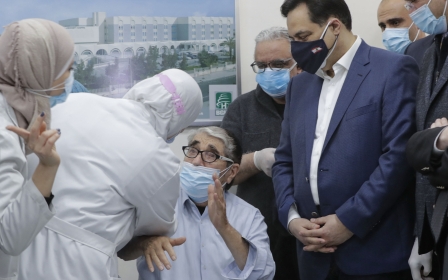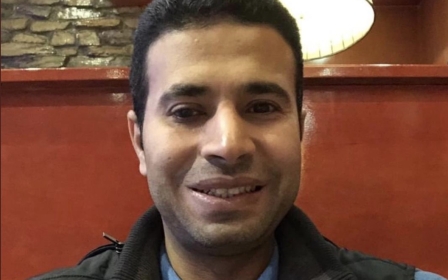Arabic press review: Bahrain protests to Qatar over Al Jazeera torture claims

Bahrain voices anger over torture allegations
Bahrain's foreign ministry has sent a letter of protest to its Qatari counterpart strongly condemning a television programme broadcast by Al Jazeera, the Cairo-based newspaper Al-Masry Al-Youm has reported.
The programme, broadcast on the Qatari network on 7 March, said that opposition prisoners were tortured in the Jaw Central Prison in Bahrain in 2015.
The ministry said the episode contained “inaccurate information” and allegations made by people who had been hired to campaign against Bahrain.
The letter said the programme was incompatible with the spirit and principles of the Gulf reconciliation declaration reached at the Al-Ula summit in Saudi Arabia earlier this year.
The complaint also expressed discontent that Qatari security forces were still harassing Bahraini fishermen.
It described the harassment as “inhumane treatment that contradicts the principles of human rights affirmed by international covenants, charters and laws, and threatens the livelihood of Bahraini fishermen”.
Report highlights plight of journalists in Egypt
Al-Quds Al-Arabi has highlighted a recent report by the Association for Freedom of Thought and Expression (AFTE) that said at least 16 journalists were being held in Egyptian prisons, all of whom were arrested for carrying out their reporting duties.
According to the report, the inmates were being held in pre-trial detention for periods exceeding two years, and without being referred to court.
The report called on the head of the Journalists' Syndicate and the Syndicate Council to "strive to release all imprisoned journalists, so that the current year will mark the end to the harassment of journalists practicing their profession".
It said that "pre-trial detention has turned into a punishment directed against journalists instead of being a precautionary measure to protect investigations, as described in the texts of law".
The report said that authorities intentionally submit new investigations to the public prosecutor against those who have been detained for a period of two years, which is legally stipulated as the maximum limit for pre-trial detention.
As a result, the report found that a new pattern of violations against journalists has emerged, known as "recycling investigations," which cause the accused journalist to continue to be held in pre-trial detention for periods of up to four years, without being referred to trial.
Egypt and Sudan in 'military coordination talks'
High-level Sudanese sources have uncovered military and security coordination between Sudan and Egypt, the first of its kind in decades, London-based Al-Araby Al-Jadeed has reported.
The sources said that "Cairo has provided the Sudanese military with sophisticated military equipment and ammunition, as well as information support regarding the border area between Sudan and Ethiopia, which is witnessing military operations".
Border tensions have reignited since the outbreak of a conflict in Ethiopia’s northern Tigray region in early November, which sent more than 50,000 mainly Tigrayan refugees fleeing into eastern Sudan.
The sources said reports about plans for Sudan and Egypt to implement a military operation over the Renaissance Dam if Addis Ababa refuses to sign a binding agreement to operate the dam before the start of the second filling process planned for next July were highly unlikely.
They said variables on the ground made such an operation impossible.
The sources added that talks on military coordination had nothing to do with the dam crisis, but were rather related to the dangers and crises facing the two countries, noting that Egypt had announced its full support for Sudan in its efforts to protect its national security and protect its borders.
Lebanon facing total darkness at end of March
Raymond Ghajar, Lebanon's minister of energy and water, has warned that his country may go into "total darkness" at the end of this month unless necessary funds are made available to buy fuel to operate power stations, the Lebanese National News Agency has reported.
Lebanon has faced growing problems in the electricity sector for at least three decades, forcing authorities to partially distribute electricity to the country’s regions, as power cuts reach 12 hours a day in some areas.
The situation has forced the majority of citizens to have to pay two bills, one for the state and the other for owners of private electricity generators, which compensate for the lack of state supplies.
After meeting with Lebanese President Michel Aoun, Ghajar said: "Lebanon may go into total darkness at the end of this month if Electricity Lebanon Company is not granted a financial contribution to buy fuel."
The minister said he had asked Aoun, caretaker prime minister Hassan Diab and head of parliament Nabih Berri, to approve an emergency loan for the state power company worth 1,500bn Lebanese pounds ($996m at official rates) to buy more fuel, including an advance of 200bn Lebanese pounds ($132m).
*Arabic press review is a digest of reports that are not independently verified as accurate by Middle East Eye
Middle East Eye propose une couverture et une analyse indépendantes et incomparables du Moyen-Orient, de l’Afrique du Nord et d’autres régions du monde. Pour en savoir plus sur la reprise de ce contenu et les frais qui s’appliquent, veuillez remplir ce formulaire [en anglais]. Pour en savoir plus sur MEE, cliquez ici [en anglais].





